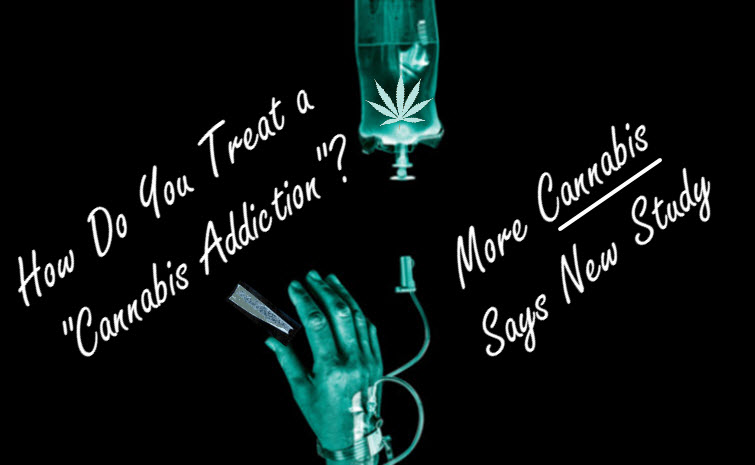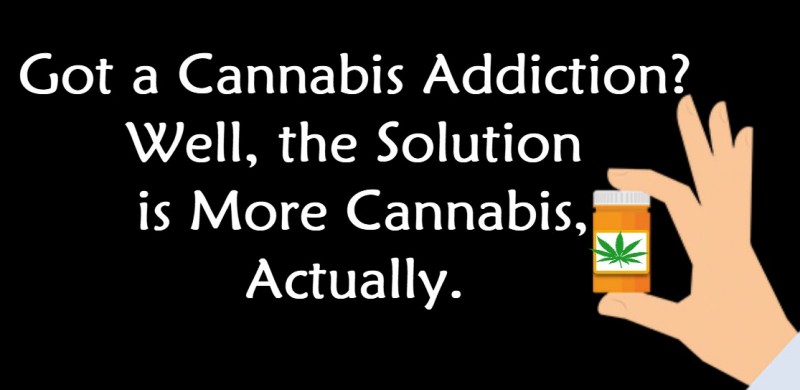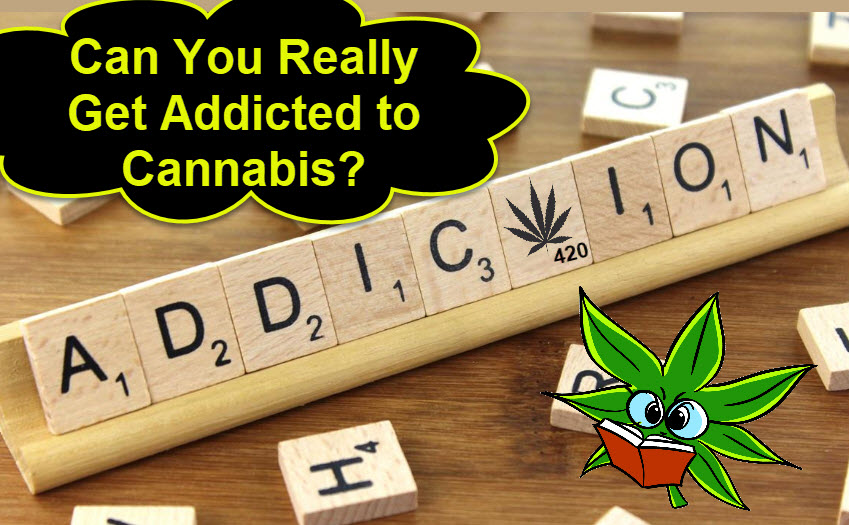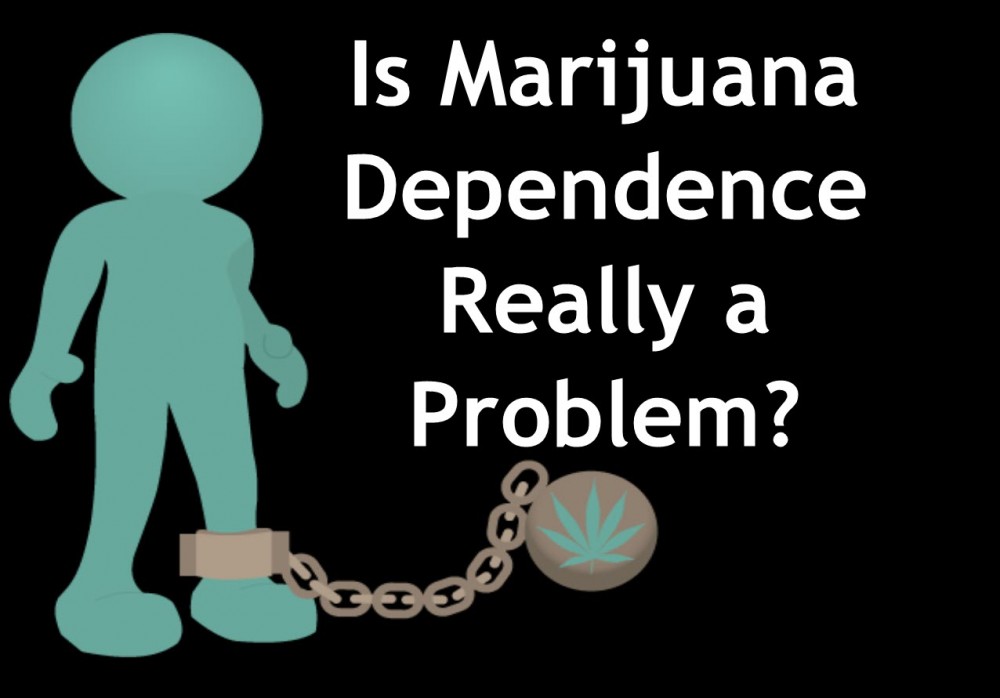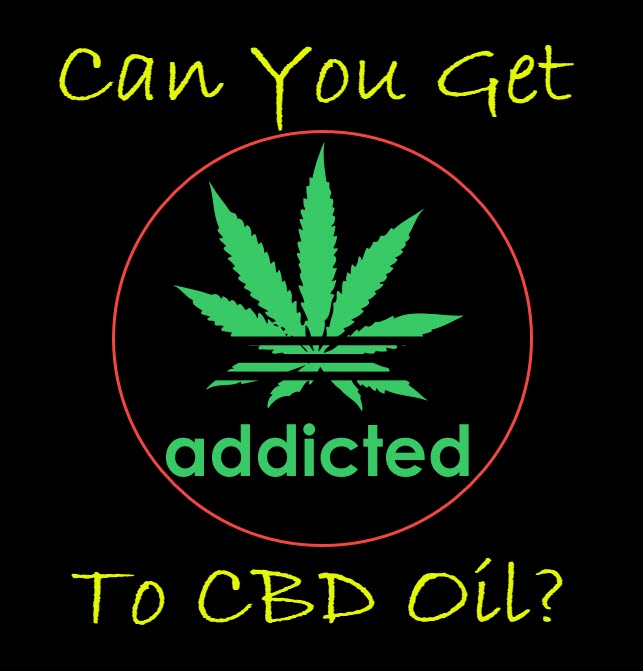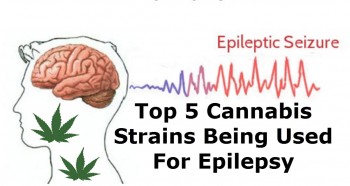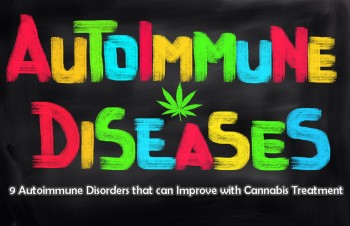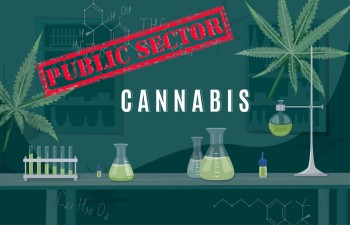Got a Cannabis Addiction? Well, the Solution is More Cannabis
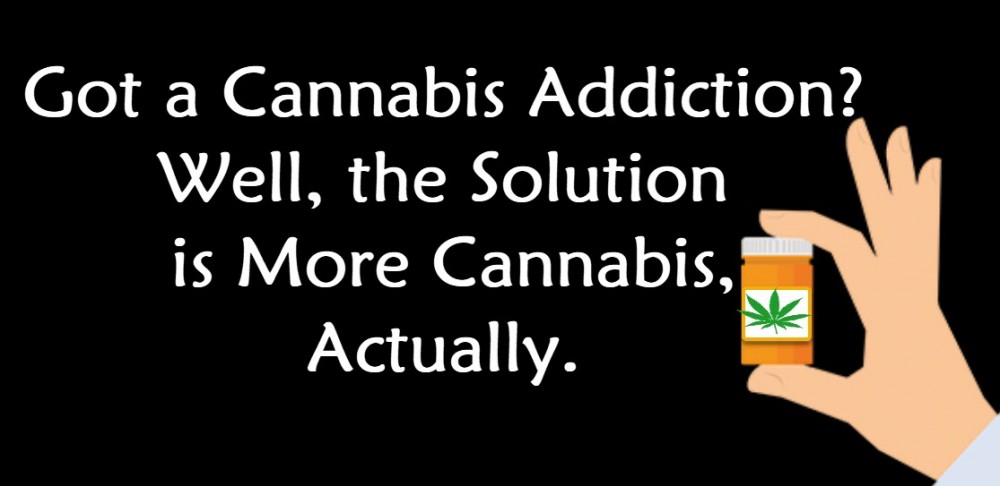
We’ve got so much evidence lying around that cannabis just isn’t addictive, but surely there are some people who have more of a dependency to it than other people.
We can’t blame them: cannabis does make you feel good, reduces stress, helps you sleep better, and so much more.
But the irony is that scientists discovered the cure to a cannabis addiction is a cannabis-based treatment.
Trials conducted by researchers in Canada and Australia involved testing the impact of nabiximols (Sativex) for treating cannabis dependency. Nabiximol is a mouth spray laced with THC and CBD, which has been found to be beneficial for cannabis users who want to curb their addiction.
The study, published in JAMA Internal Medicine, concluded that regular cannabis smokers who were given nabiximols consumed 18.6 less days during a 12-week experiment, compared to those who were given placebo. Overall, drug dependence was reduced by around 40%.
Because of this, the researchers suggest that it may be the key for helping people wean off their cannabis dependency.
According to lead author Dr. Nicholas Lintzeris, a teacher at the University of Sydney and also a director of drug and alcohol services with the South East Sydney Local Health District, says that the study findings are “pretty significant”.
“Cannabinoid agonist treatment is unlikely to be an approach relevant to all cannabis users seeking treatment, as evidenced by the large numbers of individuals who did not complete the study screening process, and the modest 12-week treatment retention rate,” says the study conclusion. “Whereas nicotine-agonist and opioid agonist treatments are considered front-line therapies, our findings suggest a more cautious approach for cannabinoid agonist treatment at this time. The control group demonstrated some benefits from treatment, confirming previous research that psychosocial interventions (CBT and case management) without medication can be effective for some patients.”
The researchers think that more trials are necessary, though they point out that “cannabinoid agonist treatment to be a promising approach for treating patients with cannabis dependence, particularly for those who cannot sustain reductions in illicit cannabis use with counselling-only interventions, in a stepped care approach.”
So How Addictive Is Cannabis?
There is still a hot debate on whether cannabis is addictive or not.
In a 2008 book entitled The Science of Marijuana, written by Leslie L. Iversen, a pharmacology professor at the University of Cambridge in England, the author explores decades of research on the plant, including both survey and laboratory-based studies.
His findings suggest that only 10-30% of regular cannabis users may become dependent on cannabis but just 9% of them will actually have a serious addiction. Most people who consume pot use it to treat chronic diseases or stress, but also use it recreationally and don’t get addicted.
There are many other drugs out there that are far more dangerous and addictive. But unlike them, cannabis use doesn’t have serious withdrawals. Most people, when they do want to quit for certain reasons, can easily give it up whenever needed.
Let’s take a look at the science behind how this works.
Tetrahydrocannabinol (THC), an active compound in cannabis and the one responsible for getting you high, binds to the CB1 and CB2 receptors found in the brain. As a partial agonist, THC only binds to the receptors but it doesn’t do so to their full capacity.
As we already know, some cannabinoids help us regulate sleep, appetite, and mood. This is some of the reason why cannabis is so effective.
However, most people don’t realize that the cannabinoid receptors in the body as well as the opioid receptors found in the brain also do interact. The opioid receptors activate the dopamine pathway, which is known to be the reason why we find doing drugs so rewarding and addictive. But when the CB1 receptors are not activated, other stimulants such as booze and nicotine are no longer that rewarding.
What this means is that drug dependency depends on the cannabinoid receptors, and since these are the main targets of THC in the body, it’s the same explanation for whether we find cannabis use rewarding or not.
Since there is an association between the THC receptors and the addictive properties of other harmful drugs, saying that cannabis is addictive is simply wrong.
But while there will still be a minor few who do get addicted to drugs including cannabis, the treatment is – more cannabis.
IS MARIJAUNA ADDICTIVE, READ THESE...
CAN YOU GET ADDICTED TO WEED, CLICK HERE.
OR..
IS MARIJUANA DEPENDENCY A REAL PROBLEM, CLICK HERE.
OR..
CAN YOU GET ADDICTED TO CBD OIL? CLICK HERE.
OR...
